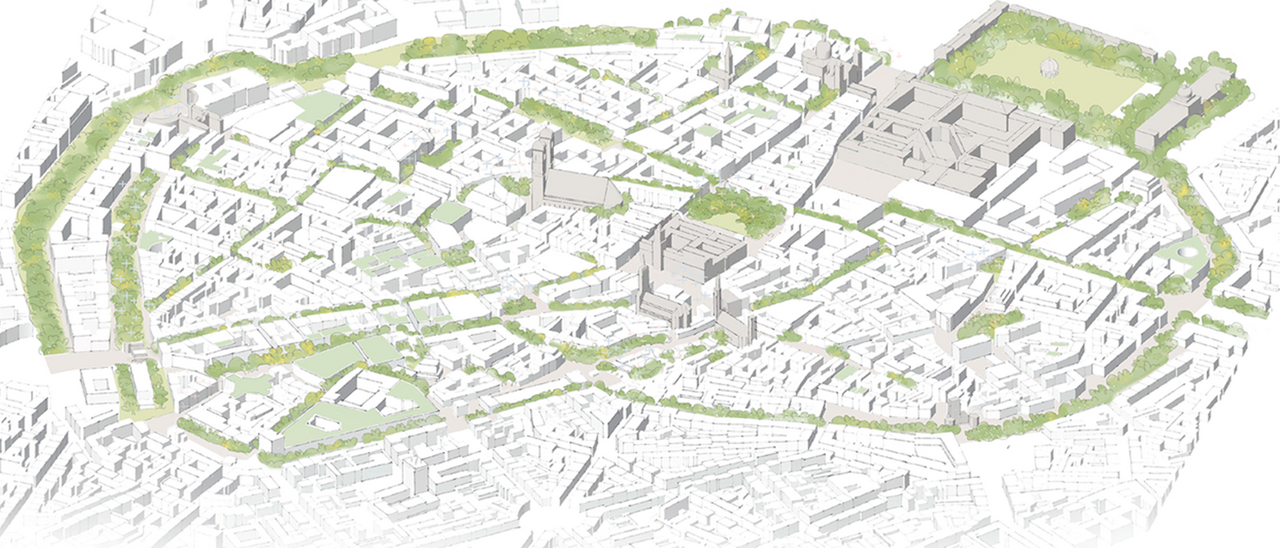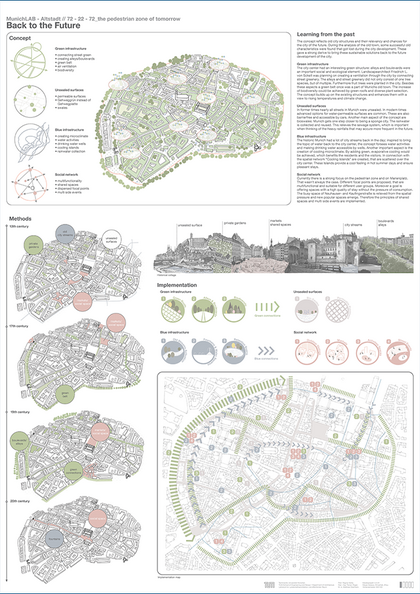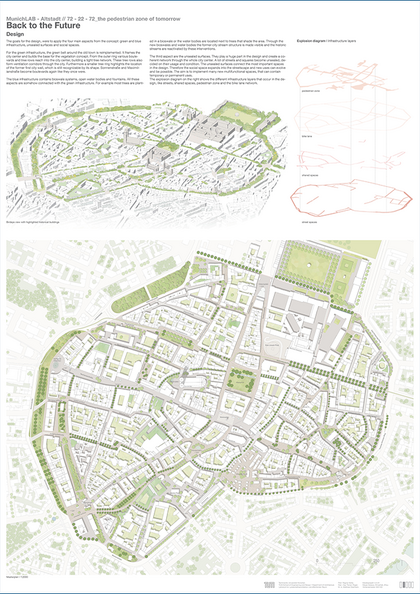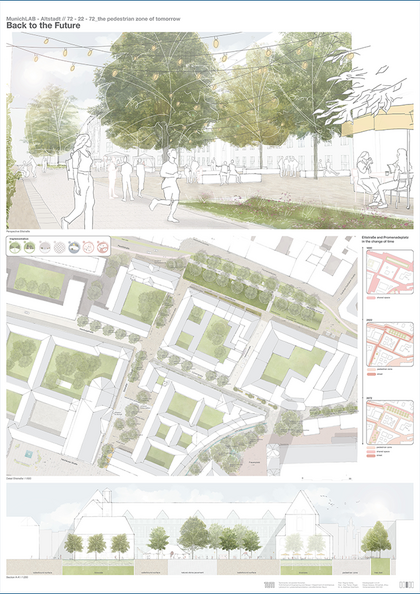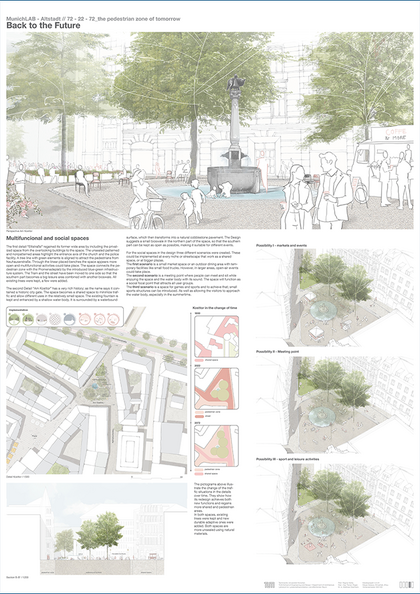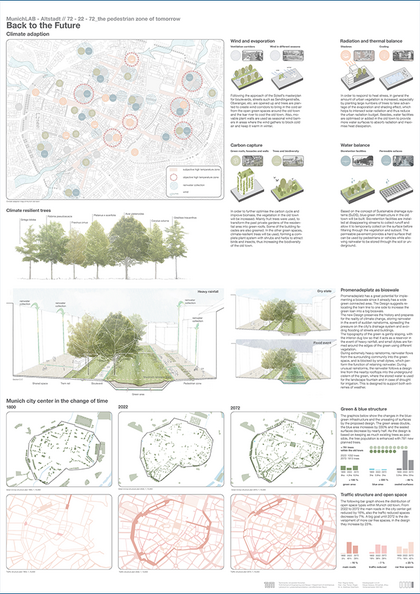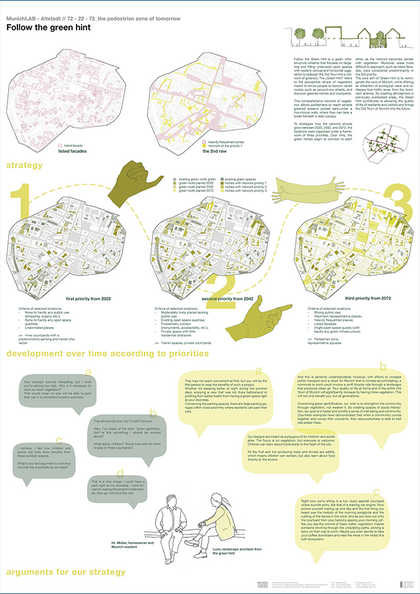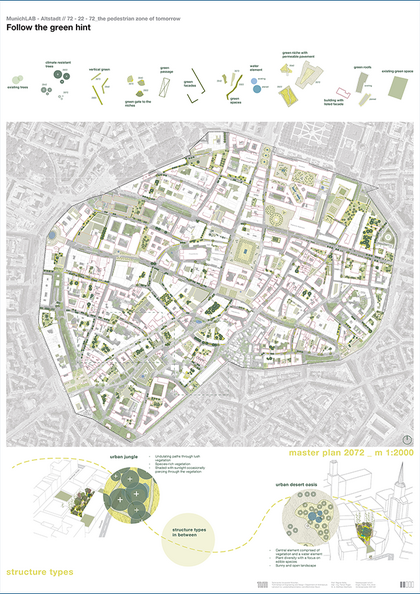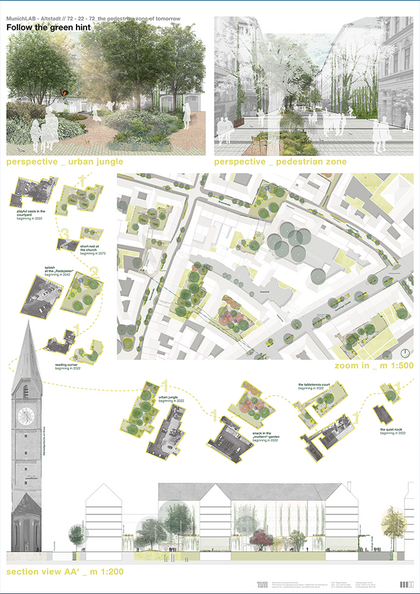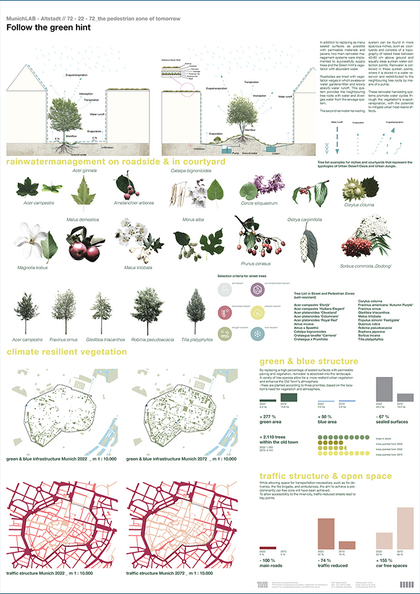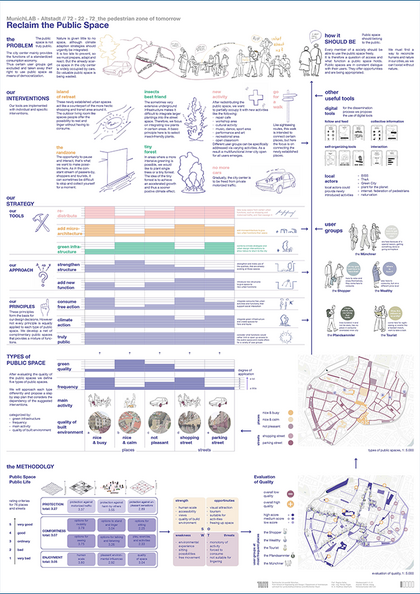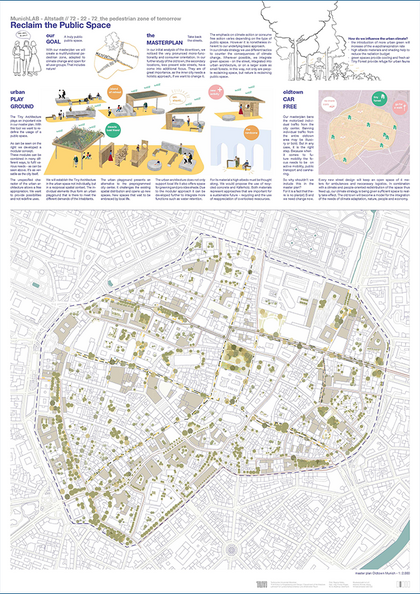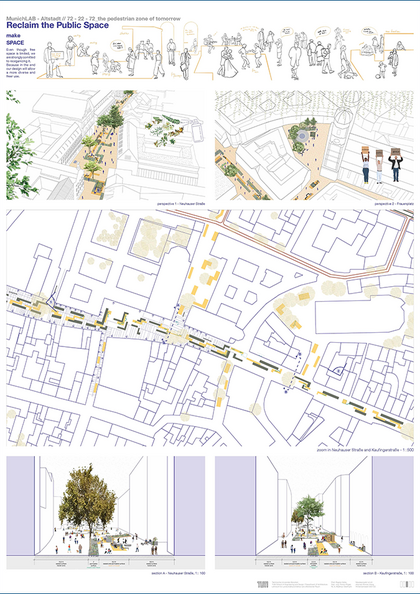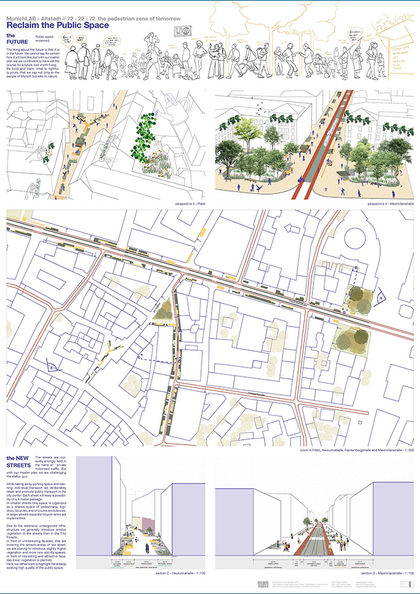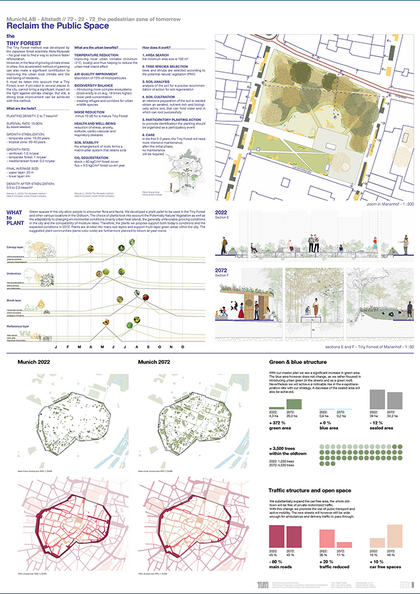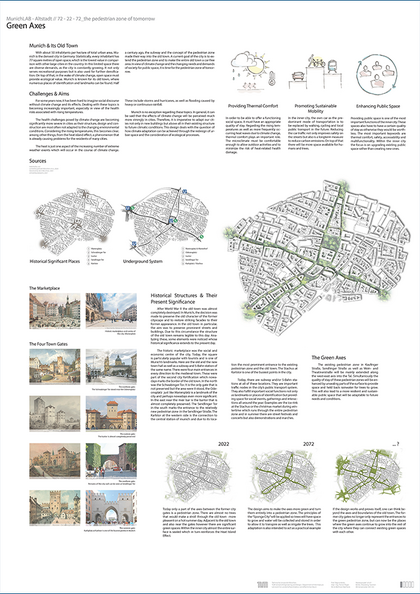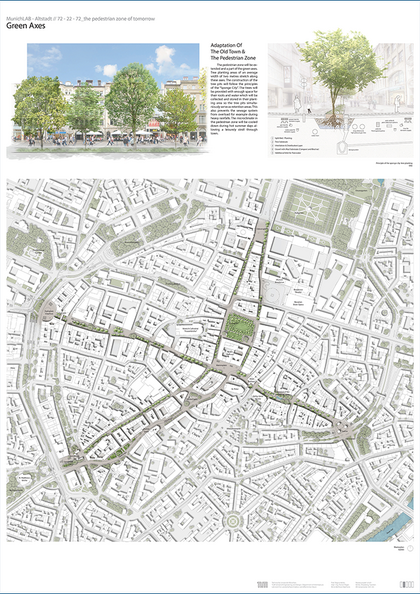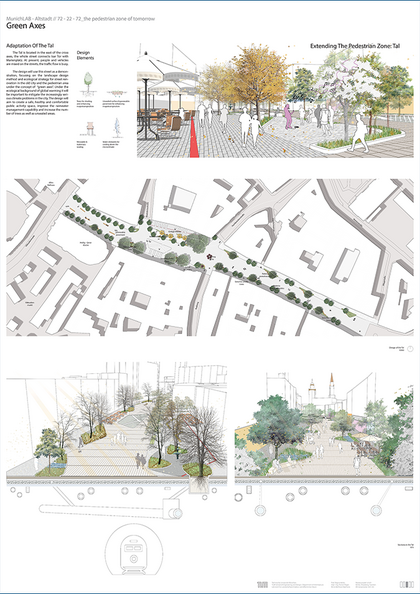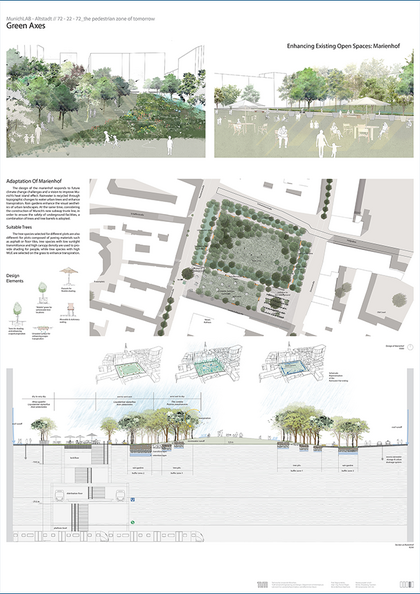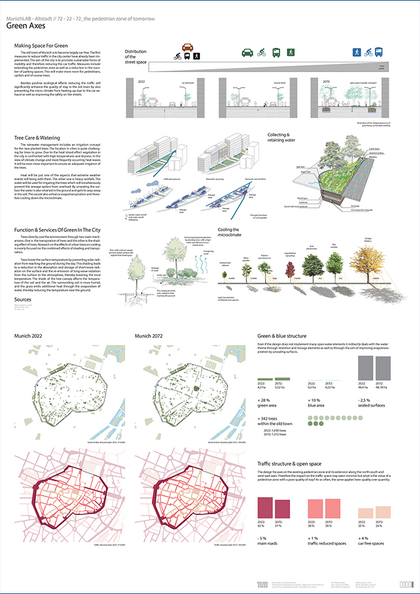72-77-72
The Pedestrian Zone of Tomorrow
Semester Project M.A. Landscape Architecture, Winter Semester 2021/22
Topic
On the occasion of the anniversary of the pedestrian zone established in 1972, the chair is dealing with the further development and future of the public street space in Munich's old town in the cross-project platform "MunichLAB". More than 50 years ago, the city of Munich experienced an urban planning revolution with the awarding of the Summer Olympic Games. In the heart of the city, a 900-meter-long and 30-meter-wide car-free area was created from Karlstor to the city hall - Munich's first pedestrian zone. In subsequent years, further streets were converted into pedestrian zones and traffic-calmed areas as part of traffic-calming measures. Current plans call for the entire old town to be largely car-free. But how can this change be accomplished, how is it expressed spatially, and can it be designed with quality beyond mere mobility planning? What are the requirements for the pedestrian zone of the future in times of changing climatic conditions and a constantly changing society?
Task
The task is to depict and analyze Munich's old town with the Altstadtring and the existing pedestrian zones. The results of the analysis will be compared with reference sites worldwide in order to identify optimization potentials of Munich's old town with regard to climate-adapted and resilient planning, the challenges of demographic change and the associated challenges of new usage requirements, equality and inclusion, and participation demands. In the design part, high-quality, sustainable and climate-optimized strategies for a car-free old city will be presented and model street sections and pedestrian zones will be developed in detail.
The aim is to understand and negotiate the different requirements for an old town redevelopment in order to create high-quality open spaces for Munich's old town that take into account both socio-ecological and ecological needs.
Supervision
Prof. Regine Keller, Dipl.-Ing. Florian Rüger, M.A. Landschaftsarchitektur Matthias Oberfrank
